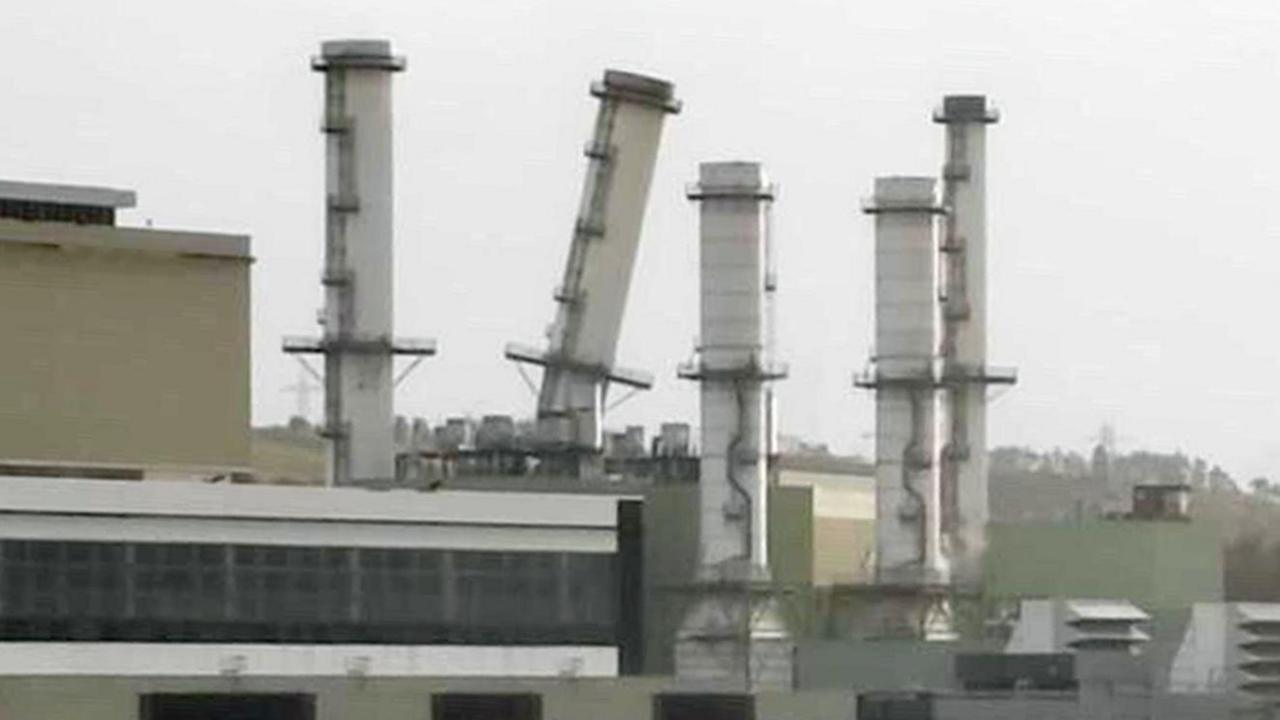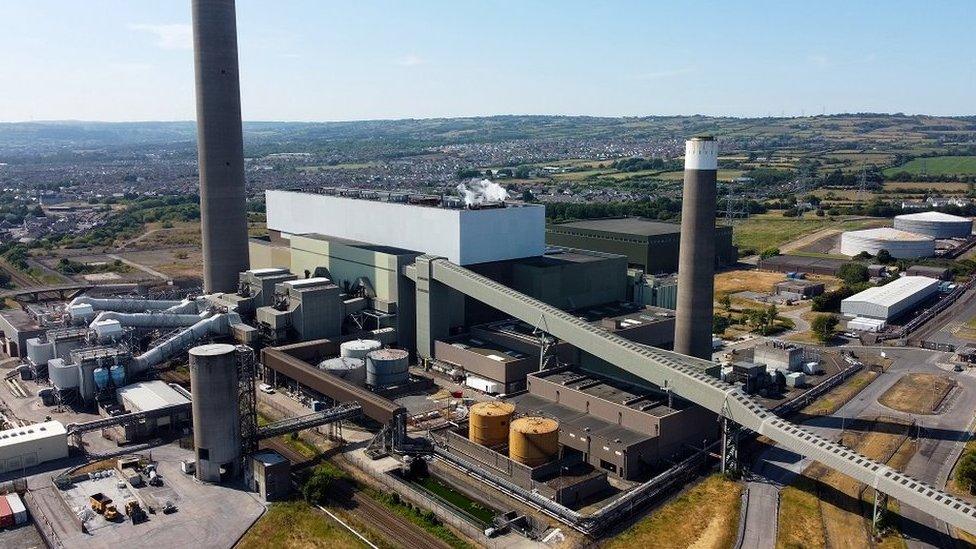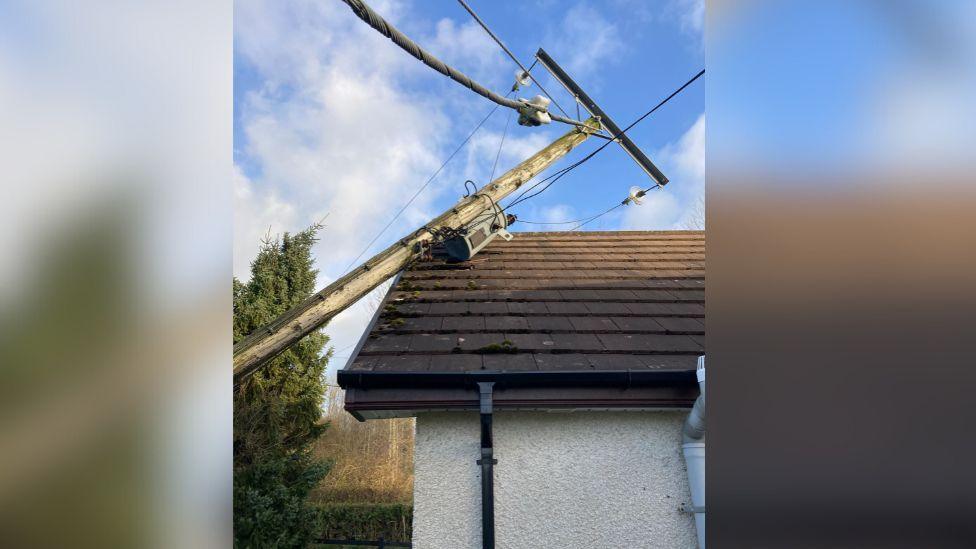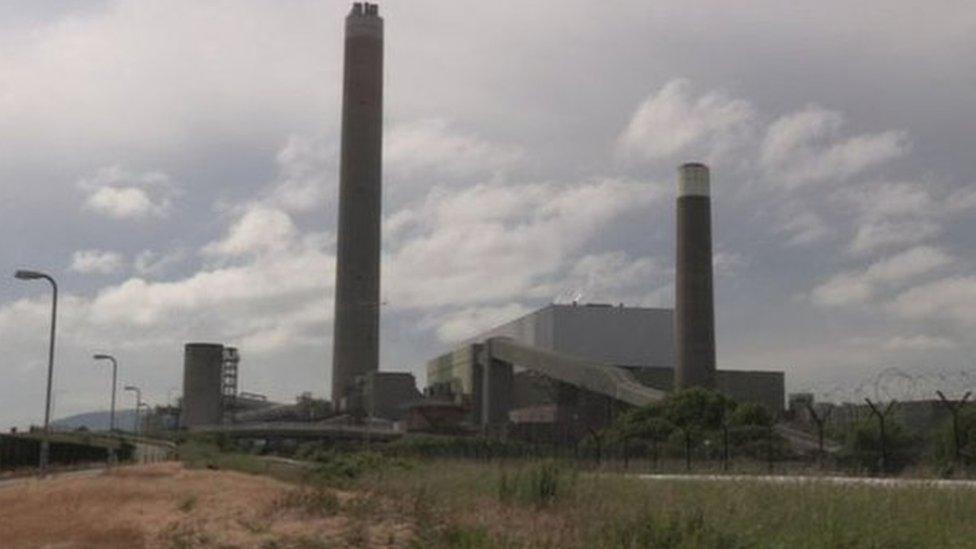Storm damage risks electric supply from power station

A chimney was damaged during Storm Darragh in December
- Published
The company which operates Northern Ireland's electricity grid has said storm damage to Ballylumford power station in County Antrim has increased the risk to supplies for the rest of the winter.
A chimney at Ballylumford was damaged during Storm Darragh on 7 December, and the plant is now undergoing "complex repairs".
However, the System Operator NI (SONI) said the risk of disruption to the electricity supply remains low.
It added that there is "no risk of blackouts" so long as other power generators across the system remain intact.
'Onerous period'
SONI said the storm damage means three of six large generating units in Northern Ireland have been "forced into extended outage".
It is not yet clear when the repairs at Ballylumford will be complete.
That has prompted SONI to update its annual winter forecast which assesses the balance between supply and demand.
SONI Director of Operations, Emma Morris, said: "Our latest assessments show that while we still expect there to be sufficient generation to meet consumer demand, assuming the remaining portfolio of conventional generation can be fully utilised, the power system will experience tighter margins for the remainder of the winter period".
For SONI's purposes the winter period lasts until March and it expects this month to be "the most onerous period from a capacity margin perspective".
During winter 2023 Kilroot power station was not operating because its coal-fired generation had been shut down and its new gas-fired units were not ready for use.
Despite fears of supply shortages when Kilroot was off-line, there was only one brief "amber alert", meaning the buffer between electricity supply and demand was tighter than SONI would have liked.
At that time Northern Ireland was heavily dependent on electricity from GB coming via the Moyle Interconnector.
It has a GB-NI capacity of 450MW and was providing 440MW at times of low wind generation.
Related topics
- Published28 March 2024

- Published8 December 2024

- Published24 April 2019
